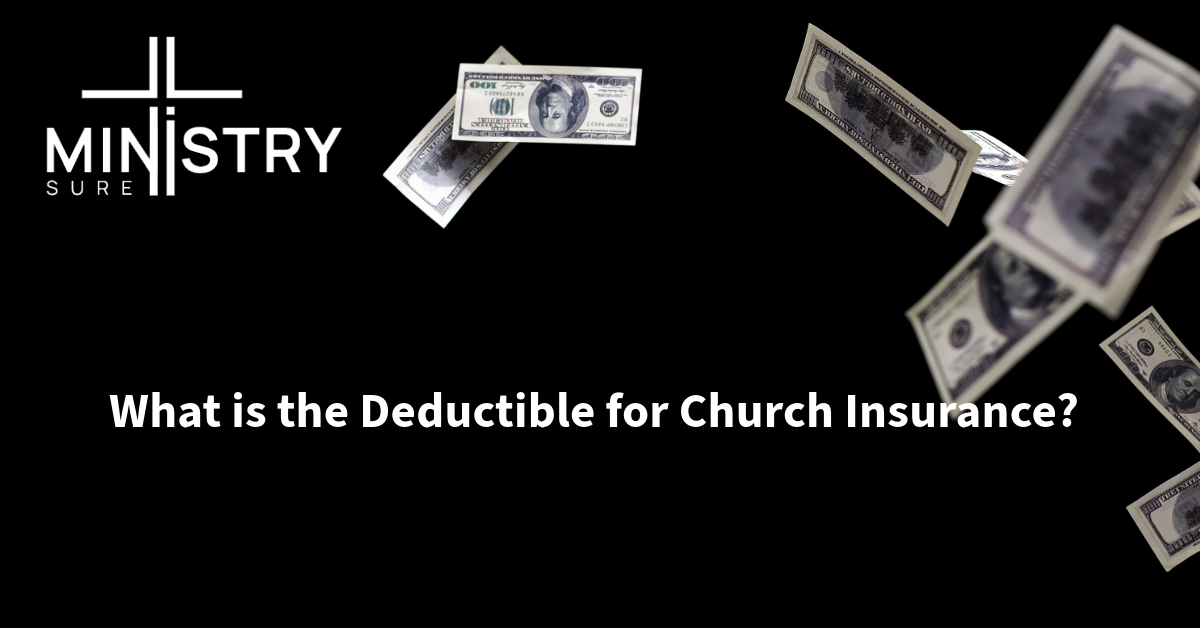Pastor Tom, who leads a small but dedicated church in Georgia, had always been diligent about ensuring his church was adequately insured. One unexpected late-season stormy night, a powerful windstorm hit, bringing hurricane-force winds that usually missed this part of Georgia. As Pastor Tom sifted through the debris, he remembered the church’s insurance policy and felt a sense of relief. However, when he contacted his insurance company, he was informed about the deductible he needed to pay before any repair costs would be covered.
This deductible was a financial hurdle the church had to overcome before the insurance benefits could kick in. Some of his congregants had previously tried to convince him to opt for a budget insurance carrier that would lower costs but leave them more exposed to risk. Thankfully, Pastor Tom had resisted, valuing comprehensive coverage. His experience highlights the importance of understanding deductibles in church insurance policies.
Understanding Church Insurance Deductibles
Before diving into specifics, let’s clarify what an insurance deductible is. An insurance deductible is the amount the policyholder must pay out-of-pocket before the insurance company covers the remaining costs. For churches, this means that when damage occurs, the church must first pay a set amount before the insurance policy helps cover the rest. This applies to various types of insurance, including property damage and liability insurance. Knowing this upfront cost helps churches prepare financially for potential claims.

Types of Deductibles in Church Insurance
Church insurance policies can have different types of deductibles. The most common include:
- Flat Deductible: A specific dollar amount the church must pay for each claim.
- Percentage Deductible: A percentage of the total insured value of the property. This type can be more challenging for churches with high-value properties, such as large church buildings. For instance, a 2% deductible on a $1 million property would require the church to cover $20,000 before insurance kicks in, which can be a significant financial burden.
Factors Influencing Deductible Amounts
Several factors influence the deductible amount for church insurance:
- Policy Terms: The specific terms and conditions outlined in the insurance policy. Understanding these terms is crucial for financial planning.
- Insurance Provider: Different insurance providers, like Brotherhood Mutual Insurance Company, may offer varying deductible options. These options can impact the overall cost and coverage of the policy.
- Church’s Financial Situation: Churches may choose higher deductibles to lower their premium costs. This decision involves balancing the immediate out-of-pocket expenses with long-term savings on the insurance premium.
- Type of Coverage: The type of coverage (e.g., property damage, liability) can also affect the deductible. For instance, commercial property insurance might have different deductible requirements compared to employee dishonesty coverage. This ensures the church is adequately protected against various risks.
Why Deductibles Matter
Deductibles play a crucial role in church insurance policies for several reasons:
- Financial Planning: Understanding the deductible helps churches plan for potential out-of-pocket expenses. This preparation ensures that the church can handle these costs without disrupting its operations.
- Policy Premiums: Higher deductibles generally result in lower premium costs, making insurance more affordable. Churches can save on their annual premium by opting for a higher deductible.
- Claims Process: Knowing the deductible amount helps churches navigate the claims process more efficiently. It ensures that church leaders are aware of their financial responsibilities before insurance coverage takes effect.
Common Deductible Amounts
While deductible amounts can vary, common ranges for church insurance deductibles include:
- Property Damage: Typically between $500 and $5,000, depending on the size and value of the property. Larger or more valuable properties may require higher deductibles.
- Liability Coverage: Often around $1,000 to $2,500, but can be higher for more extensive coverage. This type of insurance protects the church against claims of negligence and other liabilities.
Assessing Your Church’s Needs
Every church has unique needs, and it’s essential to assess these needs when choosing an insurance policy. Factors to consider include:
- Budget: Ensure the deductible amount aligns with the church’s budget and financial capabilities. This helps avoid financial strain in the event of a claim.
- Risk Exposure: Consider the risks the church is exposed to and choose a deductible that balances cost and coverage. For example, churches in areas prone to natural disasters may need higher deductibles.
- Property Value: Higher-value properties may require higher deductibles to maintain affordable premiums. Assessing the replacement cost of buildings and contents is crucial for adequate coverage.
Types of Liability Coverage for Churches
Churches often require various types of liability coverage to protect against different risks:
- General Liability: Covers legal liability for accidents and injuries that occur on church property. This is essential for protecting the church against common incidents like slips and falls.
- Professional Liability: Protects against claims of negligence related to professional services provided by church staff. This includes counseling and other professional activities.
- Employee Dishonesty: Covers losses due to dishonest acts by church employees. This helps safeguard the church’s financial assets and maintain trust within the congregation.
- Sexual Abuse Liability: Provides coverage for claims related to alleged incidents of sexual abuse. This critical coverage helps protect the church and its leaders from financial and reputational damage.
Understanding Costs and Coverage Limits
Understanding the cost of repairs and the cost of replacement is crucial when dealing with church insurance. Insurance coverage typically helps with repair costs, but knowing your policy’s specifics, such as replacement costs and coverage limits, can make a significant difference. A reputable insurance provider can offer sound advice on ensuring your church has sufficient coverage to handle unexpected events. Ensuring that coverage limits are adequate prevents financial strain and helps the church recover quickly from any damage.
Benefits of Understanding Your Deductible
Understanding your church insurance deductible offers several benefits:
- Financial Preparedness: Knowing the deductible amount helps churches prepare financially for potential claims. This preparation ensures that the church can handle out-of-pocket expenses without compromising its operations.
- Peace of Mind: Clear knowledge of policy details ensures that church leaders can focus on their mission without worrying about insurance surprises. Peace of mind allows ministry leaders to dedicate their energy to their congregation and community.
- Informed Decision-Making: Churches can make better-informed decisions about their insurance coverage and financial planning. Understanding deductibles and coverage options helps church leaders choose policies that best meet their needs.
Navigating Church Insurance with MinistrySure
Understanding the deductible for church insurance is essential for both financial planning and ensuring comprehensive coverage. Deductibles influence the out-of-pocket expenses a church must manage before insurance kicks in. By working with reputable insurance agents and choosing appropriate deductible amounts, churches can safeguard their financial health and focus on their core mission. MinistrySure is here to assist with finding the right balance of cost and coverage, ensuring your church is well-protected against any unexpected events. With a thorough understanding of insurance premiums, coverage limits, and risk management strategies, your church can achieve sufficient coverage and peace of mind.
Pastor Tom’s story underscores the importance of understanding deductibles in church insurance policies. Knowing the deductible amount, the types of deductibles available, and how they affect your coverage can help your church be better prepared for unforeseen events. At MinistrySure, we are committed to helping Georgia churches and private schools find access to insurers that specialize in coverage for their operations. Our goal is to provide peace of mind and financial security so you can focus on what matters most—your ministry. If you have any questions or need assistance with your church insurance, don’t hesitate to contact us.
Working with an experienced insurance agent can help churches navigate the complexities of insurance deductibles. Independent agents can:
- Explain Policy Details: Clarify the terms and conditions of different deductible options. This ensures church leaders understand their coverage.
- Offer Personalized Advice: Provide recommendations based on the church’s specific needs and financial situation. This advice can help churches select the best deductible amount.
- Assist with Claims: Help churches understand their financial responsibilities and the claims process. Agents can provide support during claims, ensuring a smooth and fair settlement.
Some of the trusted carriers that MinistrySure works with include Brotherhood Mutual, and other specialized providers that understand the unique needs of religious organizations.






